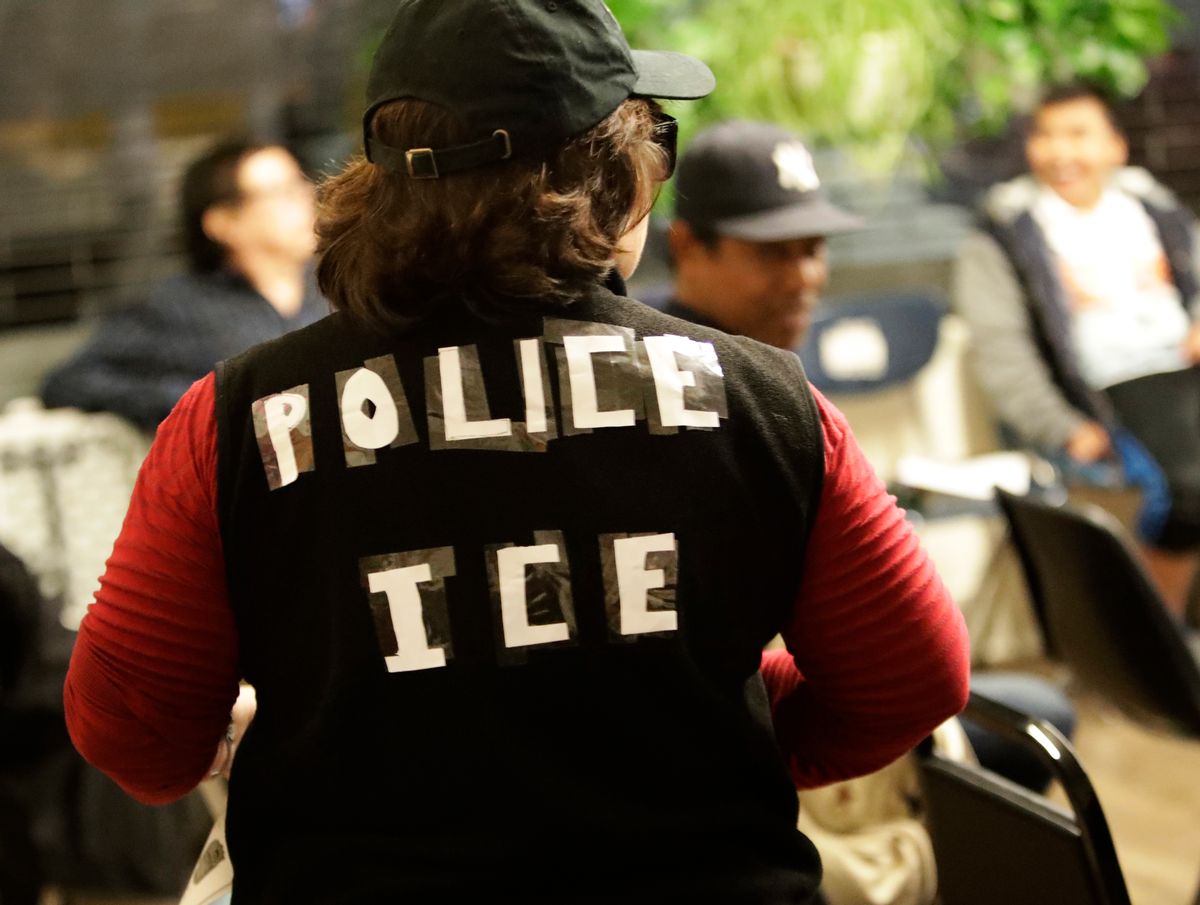President Donald Trump seemed to flip-flop on immigration reform when talking with reporters on Wednesday.
After telling a reporter that "we do" want citizenship for Dreamers, Trump explained that he believed there should be some kind of pathway to citizenship.
"Over a period of 10-12 years, somebody does a great job, they've worked hard, it gives incentive to do a great job," Trump told reporters. "If they've done terrifically, whether they have a little company, or whether they work, whatever they're doing. If they do a great job, I think it's a nice thing to have the incentive of, after a period of years, being able to become a citizen."
When asked if he would extend the deadline for when Dreamers could renew their immigration status if an agreement isn't reached by March 5, Trump said that he would consider it but could make no promises.
"Yeah, I might do that. I might do that. I'm not guaranteeing it because I want to put a little bit of -- but I certainly have the right to do that if I want," Trump told reporters.
Trump's openness toward accommodating undocumented immigrants contradicted the position posted on the White House website.
"President Trump has repeatedly stated that Congress must end Chain Migration as part of any legislative deal on DACA," the website explained. "Under our current chain migration system, newcomers are admitted to the United States based on family ties and distant relations, as opposed to a merit-based system that selects newcomers based on economic and national security criteria."
But Trump's rhetoric has also been indecisive, because his openness to granting some status has been the opposite of what hard-line conservatives have been pushing.
Trump has also implemented a number of policies that have cracked down on undocumented immigrants, from beefing up enforcement of policies that round up undocumented immigrants to trying to punish so-called sanctuary cities, according to The New York Times. These policies have ignored that the vast majority of undocumented immigrants are not people with histories of violence or other criminal records — and that they came to the United States despite a system rigged against their arrival.
"There's a myth out there that we have to have the American public understand. There is no line for people to get in in order to get their papers. It doesn't exist," Paolo Mendoza, an activist arrested for protesting the repeal of DACA, told "Salon Talks" in September.



Shares